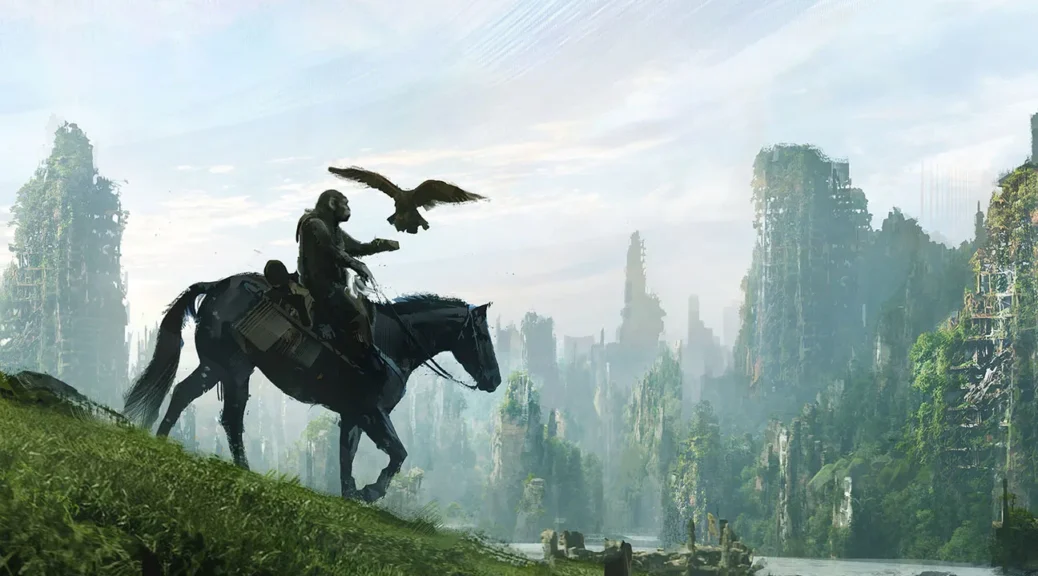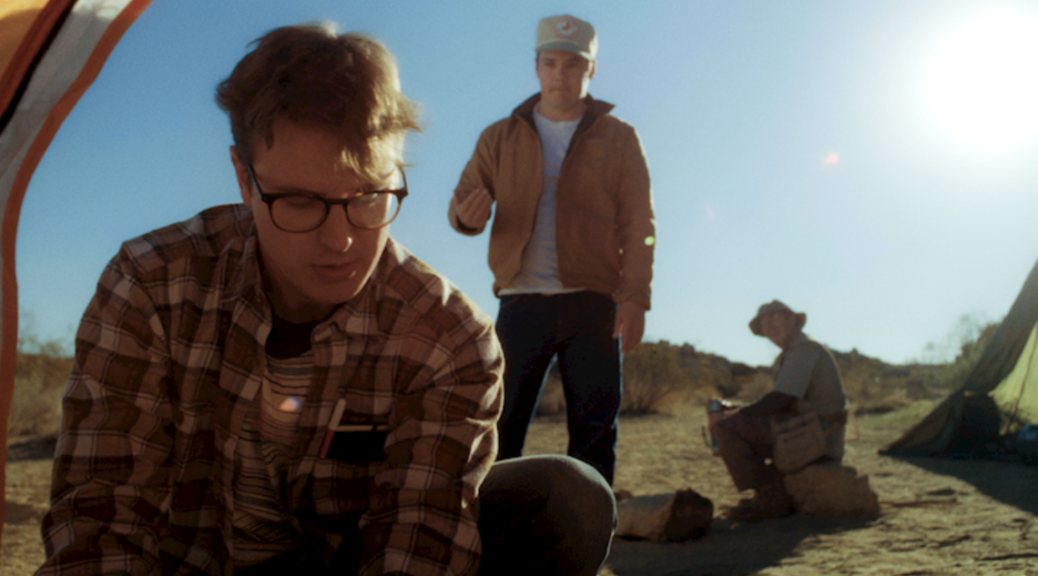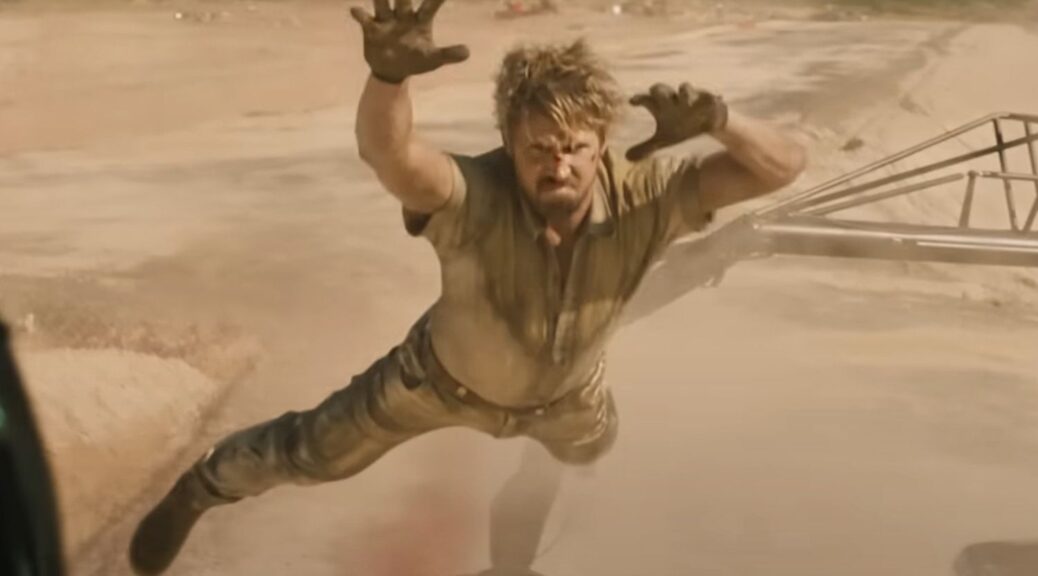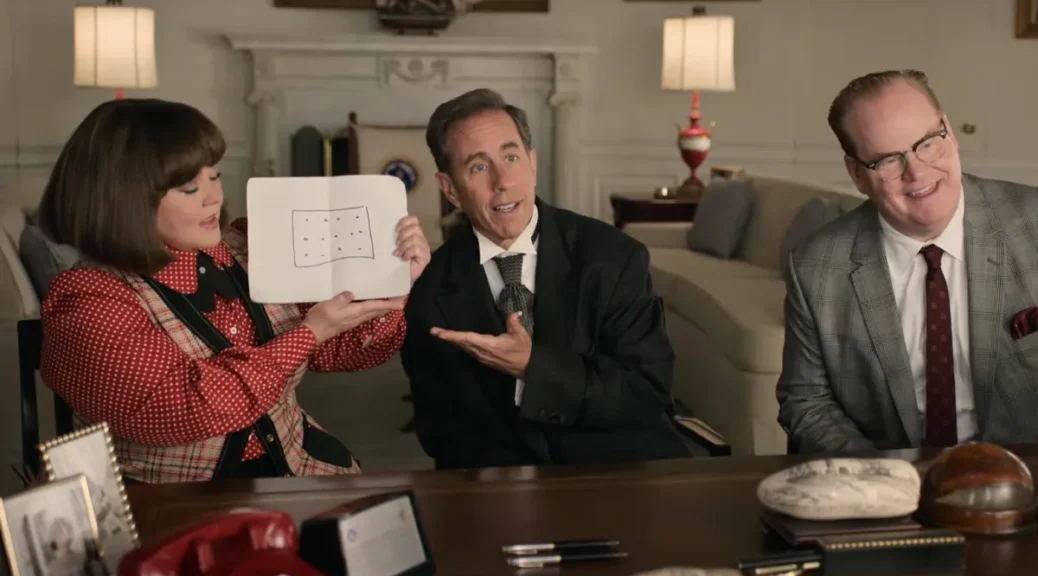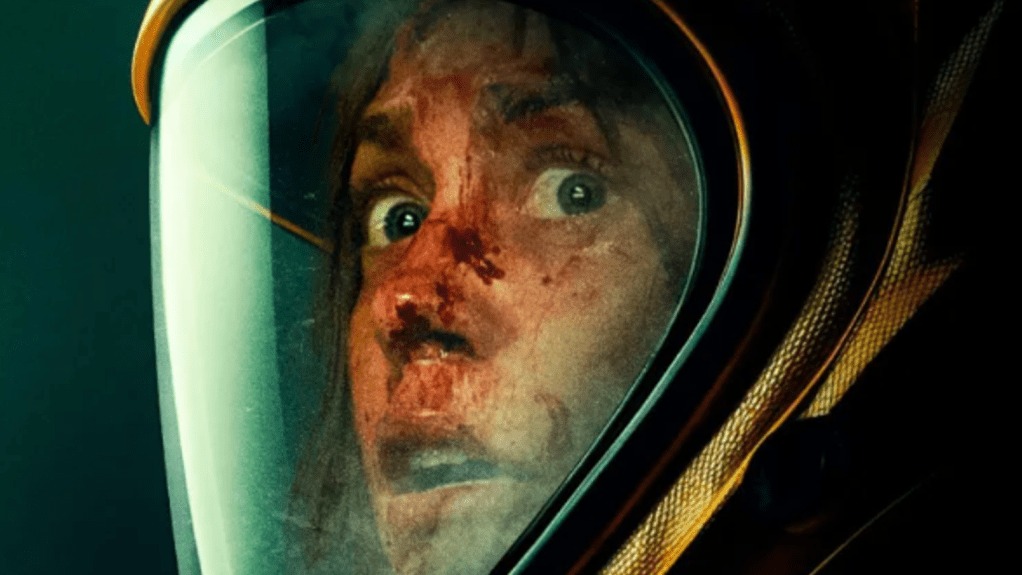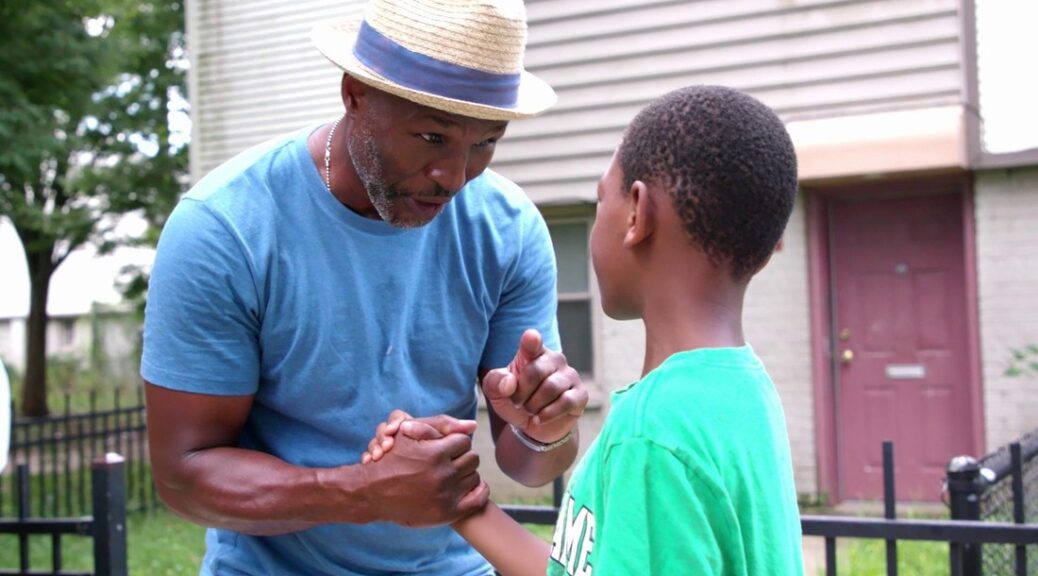Do Not Expect Too Much from the End of the World
by Matt Weiner
An overworked production assistant driving all over Bucharest to collect footage for a workplace safety video doesn’t sound like the most likely candidate for an era-defining film that best captures the current political and social moment.
Yet with Do Not Expect Too Much from the End of the World, writer and director Radu Jude has made an unsparing, pitch-black comedy with a sprawling but never dull nearly 3-hour runtime that attempts to distill the last decade-plus of precarity and decline felt by so many workers. What’s miraculous is how well Jude succeeds, without ever becoming cloying or didactic.
Angela (Ilinca Manolache) is a contract worker for a Romanian film production company. A multinational company has commissioned a safety video that sends Angela around the city to interview severely injured workers that will be vetted for the final video.
Angela, an overworked gig worker herself who is so exhausted she can’t stop falling asleep at the wheel, shows sympathy for the workers and their families as she draws out their stories for the camera. This stands out in stark contrast to how the Austrian bosses parachute into Bucharest and talk about the poorer Romanians that bring the company its massive profits.
Nina Hoss in particular stands out as a perfectly icy marketing executive whose feigned empathy masks a barely submerged contempt for the lower-class Romanian employees. (The company itself is kept vague, but Jude gets in plenty of digs about a deforestation scandal involving furniture, which narrows it down considerably.)
Angela’s diatribes take on everything from class politics to foul-mouthed influencers like Andrew Tate, with these being delivered by her filthy alter ego Bobita. Manolache created the character during COVID lockdowns, and Jude brings them to hyperreal life in one of the film’s few recurring segments shot in color.
Jude’s story is unabashedly political, and ruthless in its portrayal of the inhumanity of neoliberal austerity. But the script, propelled by Manolache’s indefatigable portrayal of Angela, is also laugh out loud funny. The capital class can take a lot from its workers, but not their profanity.
Or, as the film shifts into the making of the final safety video, their humanity. When the company selects the injured worker they want to star in the safety video, the film crew gets to work recording his story. This sequence makes up nearly the final half hour of the film, and Jude’s staging and camera choices turn a routine film within a film into an audacious set piece with an unforgettable gut punch.
Whether or not another world is possible seems to lie just outside the bounds of Angela’s day-to-day living. But Jude makes the case that one is urgently necessary, even as we laugh in the face of everything speeding up our destruction in the meantime.


